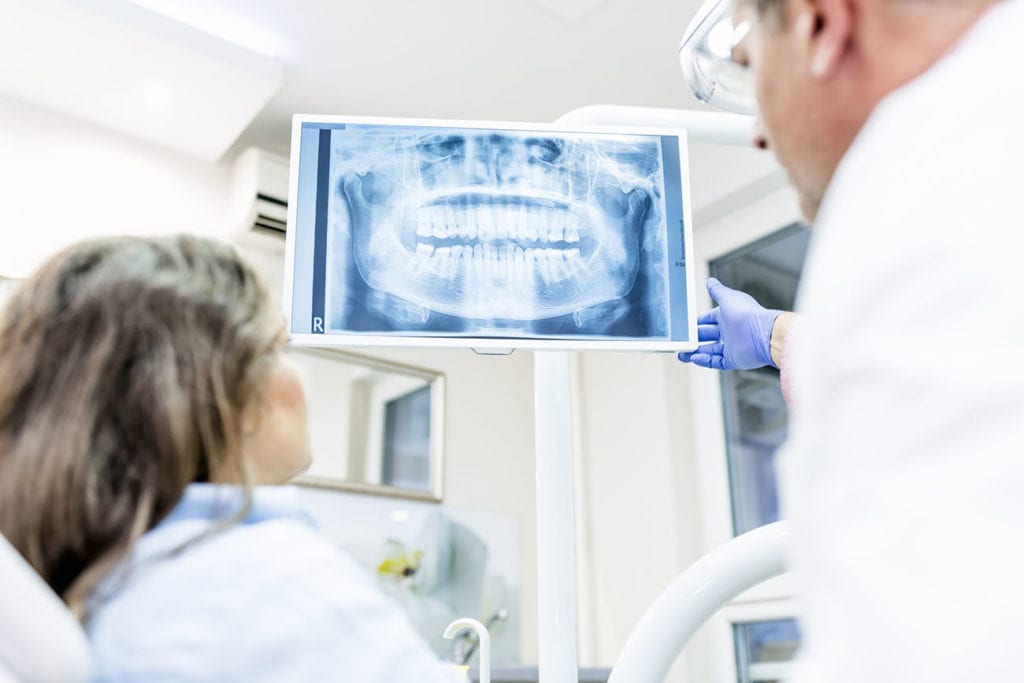Do you have severe tooth decay? Do you need a tooth removed for the sake of your oral health?
Dr. Gregory Hillyard and Dr. Alexandra Monroe provide tooth extractions and restorations in their Media, PA, dental office. Extractions are one of the dental services we provide to the public in Media, Pennsylvania.
After a tooth is extracted, they will recommend replacing it as soon as possible. If the patient qualifies for a dental implant, this will be the best option. Implants are the most natural-looking and advanced solution when compared to other teeth restorations.

Removing Wisdom Teeth
One of the most common forms of tooth extraction is a wisdom teeth, also known as third molars. These are typically removed while they are still growing in adolescents and young adults. They should be removed simply when they begin to cause issues such as damage to your other teeth, pain, bite issues, swelling, or dental infections.
As the teeth grow in, they can cause significant pain when they break the surface of the gum and shift other teeth to make room. Some people may never have their wisdom teeth erupt because there is no room. If they are not causing you any problems, we may choose to just keep an eye on them. In other cases, we may see that having them removed right away will prevent obvious issues in the future.
Tooth Extraction: What to Expect
Tooth extraction is a fairly simple procedure. At the time of surgery, we will numb the area around the tooth or teeth to be extracted with a local anesthetic to minimize discomfort. You may experience some pressure while your dentist rocks the tooth back and forth to loosen it for removal, but you should not feel pain. If you do feel any pain, please let us know.
After the tooth is extracted, a crucial part of the healing process is biting down on some gauze so that a blood clot can form. In most cases, a small amount of bleeding is normal for up to 24 hours. You may feel some pain and experience some swelling after the tooth is extracted.
An ice pack will keep swelling to a minimum. Take pain medications as prescribed. The swelling usually subsides after 48 hours, and the extraction site will close up in about two weeks.
FAQs
What should I not do after a tooth extraction?
After tooth extraction, it is vital to avoid certain activities that could interfere with healing and increase the risk of complications. These include drinking beverages through a straw, smoking cigarettes, spitting, drinking alcohol, participating in strenuous physical activity, eating crunchy or hard foods (such as popcorn and nuts), or brushing teeth near the extraction site. Additionally, follow your dentist’s instructions regarding how to care for the area after tooth extraction.
How painful is a tooth extraction?
A tooth extraction can cause some discomfort or pain, but most patients find that the pain is manageable. The amount of pain a patient will experience will depend on the location of the tooth extraction and their pain tolerance. Your dentist will likely provide local anesthesia before the procedure to help reduce any discomfort during and after the tooth extraction. Lastly, after the procedure, your dentist may advise you to take over-the-counter pain medications to relieve pain or soreness.
How long does it take to recover from a tooth extraction procedure?
The recovery time for a tooth extraction procedure depends on the complexity of the procedure and the patient’s individual healing process. Most people experience minimal discomfort within a few days. Any swelling should subside after 7-10 days. Complete healing of the extraction site usually takes around 4-6 weeks. It is important to follow your dentist’s instructions for at-home care during this period in order to speed up the healing process and minimize any potential complications.
Can I drive after a tooth extraction?
You should not drive immediately following a tooth extraction. Depending on the type of medication your dentist administers and how long it takes to wear off, you may need to wait at least 3 hours before driving. Additionally, the physical act of driving (such as steering and turning) can cause an increase in pain or bleeding. Your dentist will let you know when your body is ready to drive.
Should I undergo sedation for tooth extraction?
Whether or not you should undergo sedation will depend on your anxiety level, pain tolerance, and the complexity of the extraction. Local anesthesia is usually acceptable for simple tooth extraction to numb the area, and sedation may not be necessary.
However, experience dental anxiety or have a more complex problem, sedation options like nitrous oxide (laughing gas) and oral sedatives can help you feel more comfortable. Your dentist will help determine the most appropriate sedation option for your specific situation.
Can I go to work after a tooth extraction?
Whether or not you can go to work after a tooth extraction depends on the complexity of the procedure and your personal comfort level. For a simple extraction, some people may feel well enough to return to work the same or the next day.
However, you should take at least one or two days off to rest and recover for more complex extractions. Keep in mind that swelling, discomfort, and bleeding may persist for a short period after the procedure, so it’s essential to follow your dentist’s post-operative instructions and give yourself enough time to heal correctly.

